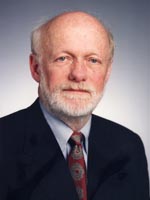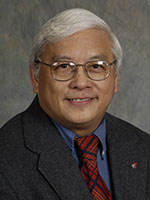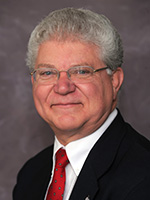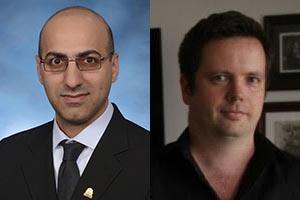It is our honor to announce this distinguished group of 2019 Scientific Achievement Award winners who are being recognized for their excellence in the pharmacology field.
The 2019 Scientific Achievement Award winners are listed below.
Division-Sponsored Scientific Achievement Awards are listed below:
John J. Abel Award in Pharmacology
 Namandjé N. Bumpus, PhD
Namandjé N. Bumpus, PhD
ASPET is pleased to award Dr. Namandjé Bumpus from Johns Hopkins University School of Medicine the 2019 John J. Abel Award in Pharmacology. The Abel Award is named after the founder of ASPET. It was established in 1946 to stimulate fundamental research in pharmacology and experimental therapeutics by young investigators.
Dr. Bumpus is being recognized for her research on the impact of drug metabolites of HIV drugs on their pharmacology and toxicology and on the effect of genetic variation in drug metabolism on anti-HIV drug disposition.
She was nominated by Dr. Paul Hollenberg from the University of Michigan, who stated that "she provides an outstanding role model for other junior investigators, particularly for women and underrepresented minorities. She has demonstrated herself to be a very innovative and creative investigator in pharmacology research and has made numerous unique and extremely valuable contributions to the field."
Dr. Bumpus completed a PhD in pharmacology at the University of Michigan and a postdoctoral fellowship at the Scripps Research Institute in La Jolla, CA. She joined the faculty at Johns Hopkins University School of Medicine in 2010. She is currently associate professor of medicine, clinical pharmacology and associate dean for basic research. Her research focuses on determining the impact of drug metabolites of HIV drugs on their pharmacology/toxicology and on the effect of genetic variation in drug metabolism on anti-HIV drug disposition. Recently, she identified variants of kinases that phosphorylate and thereby activate nucleotide reverse transcriptase inhibitors used to treat and prevent HIV infection. In 2016 she received the Presidential Early Career Award for Scientists and Engineers awarded by President Obama. In 2018 she was invited to give a briefing to the U.S. Congress on how humans process drugs. Dr. Bumpus is chair of the NIH Xenobiotic and Nutrient Disposition and Action study section and an associate editor of Drug Metabolism and Disposition. She has been a member of ASPET since 2008.
The award will be presented at the ASPET Business Meeting and Awards Presentation during the ASPET Annual Meeting at Experimental Biology 2019 in Orlando, FL on Saturday, April 6, 2019 from 4:30 pm – 6:00 pm.
Dr. Bumpus will deliver the John J. Abel Award in Pharmacology Lecture titled “Drug Metabolism, Pharmacogenomics and the Quest to Personalize HIV Treatment and Prevention" on Sunday, April 7, 2019 from 1:00 pm – 1:45 pm.
Julius Axelrod Award in Pharmacology
 Alexandra C. Newton, PhD
Alexandra C. Newton, PhD
ASPET is pleased to award Dr. Alexandra Newton from the University of California, San Diego (UCSD) the 2019 Julius Axelrod Award in Pharmacology. The Axelrod Award was established in 1991 to honor the memory of the eminent American pharmacologist who shaped the fields of neuroscience, drug metabolism, and biochemistry and who served as a mentor for numerous eminent pharmacologists around the world.
Dr. Newton is being recognized for her research in elucidating the structure and regulation of the protein kinase C (PKC) pathway and for her passion for training and mentoring young investigators.
She was nominated by Dr. Alan Saltiel also from UCSD who stated that "she is a paradigm-changing scientist, and a passionate mentor to countless young investigators." Her former trainee, Dr. John Brognard, now at NIH, described Dr. Newton as a “charismatic, optimistic, and motivational lab leader who has an amazingly clear vision for the development of research projects tackling important questions in basic science.” He noted her extreme dedication and commitment to her students even many years after they leave her lab.
Dr. Newton completed her PhD in chemistry at Stanford University and a postdoctoral fellowship in the lab of Dan Koshland at the University of California, Berkeley. She has had a major impact in understanding the structure, function, and regulation of PKC. Her research unveiled the biochemical and cellular mechanisms underlying the activation of protein kinase C by diacylglycerol and Ca2+. She overturned a 30+ year dogma that protein kinase C is an oncogene; her analysis of cancer mutations in protein kinase C revealed an unexpected tumor suppressive function. She showed enhanced activity of protein kinase C in degenerative diseases such as Alzheimer’s. Her paradigm-changing research opened the door to targeting PKC in disease, showing its activity should be restored in cancer and inhibited in degenerative pathologies. In addition to her record of accomplishment as a scientist, Dr. Newton is passionate about mentoring, serving as director of the Molecular Pharmacology training program at UCSD. She has trained over 25 PhD students who have gone on to successful academic and industry careers in pharmacology research.
She was elected as a fellow of the American Association for the Advancement of Science (AAAS) in 2012. She has been a member of ASPET since 1995.
The award will be presented at the ASPET Business Meeting and Awards Presentation during the ASPET Annual Meeting at Experimental Biology 2019 in Orlando, FL on Saturday, April 6, 2019 from 4:30 pm – 6:00 pm.
David Lehr Research Award
 Kathryn E. Meier, PhD
Kathryn E. Meier, PhD
ASPET is pleased to award Dr. Kathryn Meier from Washington State University the 2019 David Lehr Research Award. The award is intended to extend funding for preclinical or clinical research directed towards improving human health. It was established with generous funding from Mrs. Lisa Lehr in honor of her late husband who was the chair of the Department of Pharmacology at New York Medical College.
Dr. Meier has been selected to receive research funding to investigate the impact of free fatty acid receptor (FFAR) agonists on the activity of growth factors, with implications for treatment of cancer and inflammatory conditions. The award committee noted that the lab had recently transitioned to the study of FFARs and the proposed research would build upon previous discoveries within the lab and provide preliminary data for future NIH grant submissions.
Dr. Meier earned a PhD in pharmacology at the University of Wisconsin and had postdoctoral fellowships at the University of California, San Diego (UCSD) and University of Washington. At UCSD she studied alpha1- and beta2-adrenergic receptors. At the University of Washington, Dr. Meier examined roles of protein kinase C in protein phosphorylation cascades. As a tenured faculty member in pharmacology at the Medical University of South Carolina, she investigated protein phosphorylation and phospholipid metabolism in cancer. Dr. Meier is currently professor and associate dean for faculty and student development in the College of Pharmacy and Pharmaceutical Sciences at Washington State University. Her research group focuses on G protein-coupled receptors as therapeutic targets in cancer.
In her application, she noted that “During my career, I have sought to make a difference in my profession as a molecular pharmacologist in various ways, pursuing a path that has included research, teaching, mentoring, and professional service. The Lehr Award would allow me to continue to participate as a researcher and mentor while seeking NIH funding for our work on the role of FFAR agonists as negative modulators of tumor cell growth.”
In 2018, Dr. Meier was elected as a fellow of the American Association for the Advancement of Science (AAAS). She serves as Editor of Molecular Pharmacology and has been a member of ASPET since 1994.
The award will be presented at the ASPET Business Meeting and Awards Presentation during the ASPET Annual Meeting at Experimental Biology 2019 in Orlando, FL on Saturday, April 6, 2019 from 4:30 pm – 6:00 pm.
Pharmacia-ASPET Award for Experimental Therapeutics
 Craig M. Crews, PhD
Craig M. Crews, PhD
ASPET is pleased to award Dr. Craig Crews from Yale University the 2019 Pharmacia-ASPET Award for Experimental Therapeutics. This award was established in 1969 to recognize and stimulate outstanding research in pharmacology and experimental therapeutics, basic laboratory or clinical research that has had, or potentially will have, a major impact on the pharmacological treatment of disease.
Dr. Crews is being recognized for his career-spanning innovations in the area of experimental therapeutics, including research leading to the development of a new proteasome inhibitor for the treatment of multiple myeloma, and the proteolysis-targeting chimeric molecules (PROTACs) drug development technology, based on induced protein degradation. More recently, Dr. Crews has focused on adapting the PROTACs technology to previously undruggable targets.
He was nominated by Dr. John S. Lazo of the University of Virginia, who states: "His laboratory interests are quite broad, spanning from total chemical synthesis and development of novel chemical probes, to the generation of knockout mouse models, and the study of the mechanisms of biological responses to unfolded proteins. Most recently, his work on induced protein degradation is being hailed by many as a new paradigm for drug discovery and development and will almost certainly lead to novel therapeutics."
Dr. Crews graduated from the University of Virginia with a BA in chemistry and received his PhD from Harvard University in biochemistry where he also did a postdoctoral fellowship. On the faculty at Yale since 1995, his laboratory pioneered the use of small molecules to control intracellular protein levels. He was a co-founder of Proteolix, Inc. in 2003 and founded Arvinas, Inc. in 2013. Dr. Crews is currently the Lewis Cullman Professor of Molecular, Cellular and Developmental Biology with joint appointments in chemistry and pharmacology at Yale University and is the director of the Program for Innovative Therapeutics for Connecticut’s Health (PITCH), a biotech accelerator. He has been a member of ASPET since 2017.
Dr. Crews will be recognized as the recipient of this award at the ASPET Business Meeting and Awards Presentation during the ASPET Annual Meeting at Experimental Biology 2019 in Orlando, FL on Saturday, April 6, 2019 from 4:30 pm – 6:00 pm.
Robert R. Ruffolo Career Achievement Award in Pharmacology
 Palmer W. Taylor, PhD
Palmer W. Taylor, PhD
ASPET is pleased to award Dr. Palmer Taylor from the University of California, San Diego (UCSD) the 2019 Robert R. Ruffolo Career Achievement Award in Pharmacology. This award was established in 2011 in recognition of the contributions made to drug discovery and development by Dr. Ruffolo. The award recognizes the scientific achievements of scientists who are at the height of their careers and who have made significant contributions to pharmacology.
Dr. Taylor is being recognized for his career-spanning research in defining the molecular pharmacology of cholinergic synapses, structure and function of the nicotinic acetylcholine receptor and the enzyme, acetylcholinesterase.
He was nominated by Dr. William Catterall from the University of Washington who noted that “Palmer is one of the world’s leading pharmacologists with respect to his fundamental research discoveries, his academic leadership in pharmacology at UCSD, and his administrative leadership in pharmacology at ASPET and worldwide.”
Dr. Taylor received his PhD from the University of Wisconsin. After postdoctoral studies at the NIH and the University of Cambridge, he joined UCSD in 1971 as an assistant professor of medicine, became founding chair of the Department of Pharmacology in 1987, and founding dean of the Skaggs School of Pharmacy & Pharmaceutical Sciences in 2002. He was elected to the US National Academy of Medicine in 1998 and a fellow of the American Association for the Advancement of Science in 2007. He has been an ASPET member since 1971 and served as president from 1995-1996.
Dr. Taylor is a leader in understanding the molecular pharmacology of cholinergic synapses. Acetylcholinesterase (AChE) terminates neurotransmission by acetylcholine and is the molecular target of several pharmacologic agents, pesticides and nerve gases. He characterized a peripheral site critical for catalytic and inhibitor selectivity, cloned the gene encoding AChE, showed how alternative splicing of mRNA leads to distinct AChE isoforms with discrete subcellular localizations, and defined a new structural superfamily of hydrolase proteins. His studies contributed greatly to understanding the structure and ligand specificity of proteins related to the cholinesterases in structure, such as neuroligin, and in coordinated synaptic function with nicotinic acetylcholine receptors.
The award will be presented at the ASPET Business Meeting and Awards Presentation during the ASPET Annual Meeting at Experimental Biology 2019 in Orlando, FL on Saturday, April 6, 2019 from 4:30 pm – 6:00 pm.
Reynold Spector Award in Clinical Pharmacology
 V. Craig Jordan, OBE, PhD, DSc, FMedSci
V. Craig Jordan, OBE, PhD, DSc, FMedSci
ASPET is pleased to award Dr. V. Craig Jordan from the University of Texas MD Anderson Cancer Center the 2019 Reynold Spector Award in Clinical Pharmacology. This award was established in 2014 in recognition of Dr. Spector’s dedication and contributions to clinical pharmacology. It recognizes excellence in research and/or teaching in the field. This award is made possible by an endowment to ASPET from Dr. Reynold and Mrs. Michiko Spector.
Dr. Jordan is being recognized for his basic, translational, and clinical pharmacology research that resulted in development of the class of drugs known as Selective Estrogen Receptor Modulators (SERMs). SERMs revolutionized the field of women's health by providing options for the management of estrogen receptor-positive breast cancers and osteoporosis in postmenopausal women.
He was nominated by Dr. Paula Stern of Northwestern University Feinberg School of Medicine, who noted that "Dr. Jordan’s translational research over the past four decades established the standard of care for the endocrine treatment of breast cancer, chemoprevention of breast cancer, and the first studies of the evolution of drug resistance to long-term anti-estrogen therapy. Tamoxifen was the first SERM, but all SERMs have their origins in scientific discovery in Jordan’s laboratory."
Dr. Jordan obtained his BSc, PhD, and DSc in pharmacology, and the first honorary MD from Leeds University, Leeds, UK. He established "Tamoxifen Teams" to first study tamoxifen then all SERMS at Leeds and then at Wisconsin as the director of the Breast Cancer Research and Treatment program, at Northwestern University as the director of the Breast Cancer Research program, at the Fox Chase Cancer Center as vice president and research director for Medical Sciences, and at Georgetown University as scientific director. He is currently the Dallas/Ft. Worth Living Legend Chair of Cancer Research and professor of Breast Medical Oncology at MD Anderson Cancer Center. He previously held inaugural named Chairs endowed for him. He is a member of the National Academy of Sciences (2009) and Medicine (2017), a fellow of the Academy of Medical Sciences (2009), an honorary fellow of the Royal Society of Medicine (2008), and an inaugural fellow of the British Pharmacological Society (2004). Queen Elizabeth II appointed him OBE for services to international breast cancer research (2003). Dr. Jordan has been a member of ASPET since 1981.
The award will be presented at the ASPET Business Meeting and Awards Presentation during the ASPET Annual Meeting at Experimental Biology 2019 in Orlando, FL on Saturday, April 6, 2019 from 4:30 pm – 6:00 pm.
Dr. Jordan will deliver the Reynold Spector Award in Clinical Pharmacology Lecture titled “Selective Estrogen Receptor Modulation to Improve Women’s Health: Laboratory Concept to Lives Saved” on Monday, April 8, 2019 from 1:00 pm – 1:45 pm.
E. Leong Way Emeritus Travel Award
 Raymond M. Quock, PhD
Raymond M. Quock, PhD
ASPET is pleased to award Dr. Raymond Quock from Washington State University the 2019 E. Leong Way Emeritus Travel Award.
This award, originally established in 1988, is being relaunched in 2019 to provide financial support to defray the expenses for an ASPET emeritus member to attend the ASPET Annual Meeting at EB. The award honors Edward Leong Way (1916-2017). A former president of ASPET, Dr. Way is remembered for his contributions to drug metabolism research, opioid pharmacology, and a western understanding of Chinese traditional medicine, as well as the numerous scientists he mentored over 75 years of his professional life.
Dr. Quock has been selected in recognition of his career-long and continued involvement in the field of pharmacology, both as a researcher and an educator. The award committee noted that Dr. Quock's interest in the field of pharmacology began in high school when he was a volunteer in Dr. Way's lab at the University of California, San Francisco (UCSF) and felt it was appropriate that one of Dr. Way's early trainees would be selected as the 2019 recipient of the award.
As Dr. Quock noted in his application “in summer of 1964, Eddie Way gave me, a 16-year old high school student, an opportunity to volunteer in his research laboratory at UCSF. I began by washing glassware and sweeping the floors, then graduated to weighing animals and recording tail-flick reaction times. At the end of the summer, I was surprised by a check and an invitation to return the following summer. I worked in Eddie’s lab for seven consecutive summers through the remainder of high school and all of my college years. Eddie introduced me to the world of pharmacology and set me on the road to a fulfilling career in biomedical research and academia. He listed me as a co-author on a JPET paper (my first publication) on the effect of 6-hydroxydopamine on morphine tolerance and physical dependence.”
Dr. Quock has been a biomedical researcher and academician for over forty years, rising through the ranks to professor and department chair, recipient of a number of teaching awards, and twice appointed to distinguished professorships at Washington State University. He continues to direct an active research program, focusing on the mechanism of hyperbaric oxygen suppression of chronic pain and opioid dependence. Each fall and spring semester, he teaches a psychology course on drugs and behavior to nearly 200 undergraduate students and an alternating honors course in drug abuse and mental health.
Dr. Quock has been a member of ASPET since 1979 and has previously served on the JPET editorial board and on the executive committee of the ASPET Division for Pharmacology Education.
He will be recognized as the recipient of this award at the ASPET Business Meeting and Awards Presentation during the ASPET Annual Meeting at Experimental Biology 2019 in Orlando, FL on Saturday, April 6, 2019 from 4:30 pm – 6:00 pm.
Norman Weiner Award Lecture
 Mary E. Vore, PhD
Mary E. Vore, PhD
ASPET is pleased to have Dr. Mary Vore from the University of Kentucky present the 2019 Norman Weiner Lecture. This lecture was established in memory of Dr. Norman Weiner, past ASPET President and chair of the Department of Pharmacology at the University of Colorado. It is in honor of his many contributions to both ASPET and to pharmacology research and education.
Dr. Vore completed her PhD in pharmacology at Vanderbilt School of Medicine and a postdoctoral fellowship at Hoffmann-La Roche. She was a graduate faculty member at the University of Kentucky Graduate Center for Toxicology from 1979 until her recent retirement. Along the way she served as vice-chair and acting chair of the Department of Pharmacology, chair of the Department of Toxicology and Cancer Biology, director of the Graduate Center for Toxicology, and associate dean for Faculty Advancement.
She has been a member of ASPET since 1975 and currently serves as chair of the ASPET Board of Publications Trustees.
Dr. Vore will deliver the Norman Weiner Lecture titled “Cancer Chemotherapy, Oxidative Stress and ATP-Dependent Efflux Transporters” on Tuesday, April 9, 2019 from 1:00 pm – 1:45 pm.
J.H. Woods Early Career Award in Behavioral Pharmacology
 Jun-Xu Li, PhD
Jun-Xu Li, PhD
The ASPET Division for Behavioral Pharmacology is pleased to award Dr. Jun-Xu Li from the University at Buffalo the inaugural J.H. Woods Early Career Award in Behavioral Pharmacology. This award was established to recognize outstanding original research by early career investigators in the area of behavioral pharmacology.
Dr. Li is being recognized for his strong, consistent, innovative approaches to identifying therapeutics to treat pain which are devoid of abuse liability.
He received his PhD from Peking University, China and did his postdoctoral training at the University of Texas Health Science Center at San Antonio. He then joined the Department of Pharmacology and Toxicology at the University at Buffalo and became a tenured associate professor in 2016. Dr. Li’s laboratory focuses on understanding the behavioral pharmacology of imidazoline I2 receptor ligands and GABAergic positive allosteric modulators. He also is interested in understanding the role of trace amine associated receptor 1 in drug dependence and addiction. His long-term research goal is to develop novel non-opioid analgesics to treat pain and novel TAAR1-based medications to treat drug addiction. He has been a member of ASPET since 2007.
The award will be presented at the ASPET Division for Behavioral Pharmacology’s Annual Division Meeting during the ASPET Annual Meeting at Experimental Biology 2019 in Orlando, FL on Tuesday, April 9, 2019 from 6:00 pm – 6:30 pm.
Benedict R. Lucchesi Young Scientist Travel Award in Cardiac Pharmacology
 Aaron J. Trask, PhD, FAHA, FCVS
Aaron J. Trask, PhD, FAHA, FCVS
The ASPET Division for Cardiovascular Pharmacology is pleased to award Dr. Aaron Trask from the Research Institute at Nationwide Children’s Hospital and the Ohio State University College of Medicine the 2019 Benedict R. Lucchesi Young Scientist Travel Award in Cardiac Pharmacology.
This award was established to honor Dr. Lucchesi’s lifelong scientific contributions to our better understanding and appreciation of the pharmacological treatment and prevention of cardiovascular disease and for his mentoring of countless prominent cardiovascular pharmacologists in translational approaches.
Dr. Trask is being recognized for his research on abnormalities in vascular smooth muscle cells from humans with type 2 diabetes, based on his findings of coronary microvascular remodeling in preclinical models of the disease.
In his application, Dr. Trask recalled a surprise opportunity he had to meet Dr. Lucchesi during the ASPET Annual Meeting at EB 2015. During a shared meal, Dr. Lucchesi advised him that “discoveries come to a well-prepared mind.” Dr. Trask noted that “I carry those words as a guiding light within me as I progress through my research career in hopes of continuing to make strides in cardiovascular research as he did.”
Dr. Trask received his PhD in physiology and pharmacology from Wake Forest University and he completed his postdoctoral training in cardiovascular physiology and pharmacology at Nationwide Children’s Hospital. Dr. Trask's research program focuses on the early cardiovascular complications of type 2 diabetes mellitus, hypertension, and metabolic syndrome. Over the last several years, his laboratory has been addressing creative and innovative ideas surrounding coronary microvascular disease (CMD) with the ultimate goal of developing direct diagnostic methods and effectuating novel therapeutic targets of CMD, since it occurs earlier than coronary conduit disease. He has been a member of ASPET since 2009.
The award will be presented and Dr. Trask will give a lecture titled “Receptors, Biomechanics, and Cardiac Function as Modulators of Coronary Remodeling and Flow in Type 2 Diabetes” during the ASPET Annual Meeting at EB 2019 in Orlando, FL on Tuesday, April 9, 2019 from 4:00 pm - 6:00 pm.
Scientific Achievement Award in Drug Discovery and Development
 Craig W. Lindsley, PhD
Craig W. Lindsley, PhD
The ASPET Division for Drug Discovery and Development is pleased to award Dr. Craig Lindsley from Vanderbilt University the inaugural Scientific Achievement Award in Drug Discovery and Development. The award was established to recognize outstanding investigators that have made significant contributions in drug discovery, translational and/or drug development science.
Dr. Lindsley is being recognized for his highly integrated approach to drug discovery and development that bridges synthetic chemistry, novel approaches to characterization of PK/PD and target validation leading to pre-clinical development of therapeutics for treatments of neurological disorders, cancer and metabolic diseases.
He received his PhD in chemistry from the University of California, Santa Barbara and pursued postdoctoral studies at Harvard University. After a highly successful period at Merck, Dr. Lindsley moved to his current position at Vanderbilt University, where he holds the William K. Warren, Jr. Chair in Medicine, is Director of Medicinal Chemistry for the Vanderbilt Center for Neuroscience Drug Discovery, and is a University Professor of Pharmacology, Chemistry and Biochemistry. He is a fellow of the American Association for the Advancement of Science (AAAS). Dr. Lindsley has been an ASPET member since 2009.
The award will be presented and Dr. Lindsley will give a lecture titled “Translational Drug Discovery in an Academic Setting” during the ASPET Annual Meeting at EB 2019 in Orlando, FL on Monday, April 8, 2019 from 1:00 pm – 1:45 pm.
Richard Okita Early Career Award in Drug Metabolism and Disposition
 Lauren M. Aleksunes, PharmD, PhD
Lauren M. Aleksunes, PharmD, PhD
The ASPET Division for Drug Metabolism and Disposition is pleased to award Dr. Lauren Aleksunes from Rutgers University the 2019 Richard Okita Early Career Award in Drug Metabolism and Disposition. This award was established to recognize excellent original research by early career investigators in the area of drug metabolism and disposition.
Dr. Aleksunes is being recognized for her mechanistic and translational research on transporter biology, including the elucidation of critical roles of transporters in xenobiotic disposition and in the protection of multiple organs against chemical toxicities.
She received her PharmD and PhD degrees from the University of Connecticut and completed a postdoctoral fellowship at the University of Kansas Medical Center. She is currently an associate professor in the School of Pharmacy and the Environmental and Occupational Health Sciences Institute at Rutgers University where her research interests continue in the transport of toxicants in the placenta, kidneys, and brain. She also serves as director of the Rutgers Toxicology Graduate Program. In 2010, Dr. Aleksunes was selected as an Outstanding New Environmental Scientist Awardee from NIH/NIEHS. She has been a member of ASPET since 2010 and currently serves on the Finance Committee.
The award will be presented and Dr. Aleksunes will give a lecture titled "Transporters as Gatekeepers of Toxicant Exposure" during the ASPET Annual Meeting at EB 2019 in Orlando, FL in the division’s platform session on Monday, April 8, 2019 from 4:00 pm – 6:00 pm.
Additionally the division is hosting a special meet-the-experts event and dinner to celebrate the recent naming of the early career award after Dr. Richard Okita on Tuesday, April 9, 2019 from 6:30 pm – 9:30 pm.
James R. Gillette Awards from the Division for Drug Metabolism and Disposition
The James R. Gillette Awards are presented each year by the ASPET Division for Drug Metabolism and Disposition for two outstanding papers published in the previous year’s Drug Metabolism and Disposition.
The award recipient in the Pharmacokinetics/Drug Transporters category for 2018 is Hong Shen from Bristol-Myers Squibb for the paper titled “Discovery and Validation of Pyridoxic Acid and Homovanillic Acid as Novel Endogenous Plasma Biomarkers of Organic Anion Transporter (OAT) 1 and OAT3 in Cynomolgus Monkeys.”
The award recipient in the Drug Metabolism category for 2018 is Carsten Ginsel from the Institute of Pharmaceutical Chemistry, for the paper titled “The Involvement of the Mitochondrial Amidoxime Reducing Component (mARC) in the Reductive Metabolism of Hydroxamic Acids.”
The Gillette awards and short talks based on the papers will be presented during the ASPET Annual Meeting at EB 2019 in Orlando, FL in the division’s platform session on Monday, April 8, 2019 from 4:00 pm – 6:00 pm.
Division for Neuropharmacology Early Career Award
 Michelle Mazei-Robison, PhD
Michelle Mazei-Robison, PhD
The ASPET Division for Neuropharmacology is pleased to award Dr. Michelle Mazei-Robison from Michigan State University the 2019 Division for Neuropharmacology Early Career Award. The award was established to honor a young independent investigator working in neuropharmacology.
Dr. Mazei-Robison is being recognized for her excellence in understanding the molecular mechanisms that underlie changes in VTA dopamine neuron signaling, morphology, and activity induced in neuropsychiatric disorders such as addiction and depression.
Dr. Mazei-Robison received her PhD in pharmacology from Vanderbilt University and did postdoctoral training at Vanderbilt, UT Southwestern Medical Center, and Mount Sinai School of Medicine. She is currently an assistant professor in the Department of Physiology and Neuroscience Program at Michigan State University. Her lab studies the molecular mechanisms that underlie changes in ventral tegmental area (VTA) dopamine (DA) neuron signaling, morphology, and activity in neuropsychiatric disorders. She uses an array of cutting-edge techniques such as translating ribosome affinity purification and viral-mediated gene transfer to identify cell type-specific transcriptional and structural changes induced by chronic stress and opiate drugs. The functional consequences of candidate genes are interrogated in a wide array of behavioral assays to evaluate addictive- and depressive-like behaviors. Her lab has identified similar changes induced by both stress and opiates in the VTA, suggesting shared mechanisms for comorbid depression and opiate abuse. Given the current opiate epidemic, her work to define neuroadaptations responsible for altered opiate reward and intake are particularly exciting and may be critical for improved treatment. She has been a member of ASPET since 2014.
The award will be presented and Dr. Mazei-Robison will give a lecture tentatively titled “Novel Molecular Mechanisms Induced in the Ventral Tegmental Area by Drugs of Abuse” during the ASPET Annual Meeting at EB 2019 in Orlando, FL in the division’s award platform session on Monday, April 8, 2019 from 4:00 pm – 6:00 pm.
Division for Pharmacology Education – Pharmacology Educators Travel Awards
 Gagani Athauda, MD
Gagani Athauda, MD
Ashley N. Guillory, PhD
Arun M. Ram, MD
The ASPET Division for Pharmacology Education is pleased to award their 2019 Pharmacology Educator Travel Awards to Drs. Gagani Athauda from Herbert Wertheim College of Medicine, Ashley Guillory from the University of Texas Medical Branch at Galveston, and Arun Ram from Eastern Virginia Medical School.
The primary goal of these travel awards is to promote participation in the ASPET Annual Meeting by pharmacology educators and to foster career development in pharmacology education. All recipients will attend the ASPET Annual Meeting at Experimental Biology, April 6-9, 2019 in Orlando, FL.
Dr. Athauda received her MD in 2002 from Riga Stradiņš University, Latvia. She is currently an associate professor at the Herbert Wertheim College of Medicine, Florida International University where she serves as vice chair of the Department of Cellular Biology and Pharmacology. She is a pharmacology educator for courses in the first three years of medical school and is the course director of the year 1 pharmacology course. She has published her educational research in Medical Science Educator and presented her work at meetings both nationally and internationally. She has been a member of ASPET since 2014.
Dr. Guillory received her PhD in pharmacology in 2012 from the University of Houston. She was a postdoctoral fellow at University of Texas Medical Branch at Galveston. Currently, she is an assistant professor as well as the director of admissions in the Department of Physician Assistant Studies at University of Texas Medical Branch at Galveston. She has been a member of ASPET since 2010 and currently serves on the ASPET Mentoring and Career Development Committee and has prior service on the ASPET Young Scientists Committee.
Dr. Ram received his MD in pharmacology in 2002 from the Madurai Medical College at The Tamil Nadu Dr. M.G.R. Medical University in India. Since then he has held positions in India and Grand Cayman, and is currently an associate professor of clinical pharmacology at the Eastern Virginia Medical School in Norfolk, VA. He is a winner of the Crystal Apple Award for the Best Teacher at the Eastern Virginia Medical School in 2018 and the Golden Apple Award for teaching excellence in 2015 while he was serving at St. Matthews University, School of Medicine in Grand Cayman. He was recently awarded the fellowship of the Academy of Medical Educators in the UK. He has been a member of ASPET since 2014.
The awards will be presented at the ASPET Division for Pharmacology Education’s Annual Division Meeting during the ASPET Annual Meeting at Experimental Biology 2019 in Orlando, FL on Monday, April 8, 2019 from 5:30 pm – 6:30 pm.
Division for Toxicology – Career Award
 Gary O. Rankin, PhD
Gary O. Rankin, PhD
The ASPET Division for Toxicology is pleased to award Dr. Gary Rankin from the Joan C. Edwards School of Medicine at Marshall University the division’s 2019 Toxicology Career Award. The award was established to recognize outstanding original research contributions to toxicology by an established investigator.
Dr. Rankin is being recognized for his mentoring and leadership in the field of toxicology, especially his exemplary service to ASPET, and to recognize his long history of scholarship in the area of nephrotoxicity.
He received his PhD in medicinal chemistry from the University of Mississippi and had a postdoctoral fellowship at the Medical College of Ohio before joining Marshall University in 1978. He is the current vice dean for basic sciences at the Marshall University School of Medicine and chair of the Department of Biomedical Sciences. Scientifically, he has focused his career on chemical induced nephrotoxicity. His strength is the ability to examine structure-activity relationships and predict cytotoxicity to various organs. He has contributed to examining succinimide structure and susceptibility to nephrotoxicity. He has also examined the role of halogens in the renal damage mediated by aniline, aminophenol and nitrobenzene compounds, which are intermediates in the production of drugs, dyes and pesticides. More recently, Dr. Rankin has focused on the pharmacogenetic changes in drug metabolism that impact opiate overdose. Additionally, he has mentored over 25 undergraduate students, 42 graduate students and 7 postdoctoral fellows and has over 160 research publications in toxicology. He has been a member of ASPET since 1985 and currently serves on the editorial board of The Journal of Pharmacology and Experimental Therapeutics.
The award will be presented and Dr. Rankin will give a talk titled “Nephrotoxicity Induced by Dimetachlone, Halogenated Anilines and Their Metabolites” during a symposium on Kidney and Nephrotoxicity at the ASPET Annual Meeting at EB 2019 in Orlando, FL on Monday, April 8, 2019 from 4:00 pm – 6:00 pm.
Division for Toxicology – Early Career Award
 Cheryl E. Rockwell, PhD
Cheryl E. Rockwell, PhD
The ASPET Division for Toxicology is pleased to award Dr. Cheryl Rockwell from Michigan State University the division’s 2019 Toxicology Early Career Award. The award was established to recognize excellent original research by early career investigators in the area of toxicology.
Dr. Rockwell is being recognized for her excellent history of funding and publications in high quality journals, as well as her active role in multiple toxicologically-based societies, and her demonstrated success in mentoring the next generation of toxicologists.
Dr. Rockwell received her PhD from Michigan State University in 2005. As a postdoc, she trained at the University of Missouri Kansas City and the University of Kansas Medical Center. She became an assistant professor at Michigan State University in 2011, where she received tenure in 2017. She has published over 30 peer-reviewed papers as well as a book on immunotoxicology protocols. In 2016, she received an Outstanding New Environmental Scientist award from the NIEHS. She has been a member of ASPET since 2009 and recently served on the editorial board of Molecular Pharmacology.
The award will be presented at the ASPET Division for Toxicology’s Annual Division Meeting during the ASPET Annual Meeting at Experimental Biology 2019 in Orlando, FL on Monday, April 8, 2019 from 6:00 pm – 6:30 pm.
Division for Translational and Clinical Pharmacology – Early Career Awards
 Nariman Balenga, PhD
Nariman Balenga, PhD
Ross Corriden, PhD
The ASPET Division for Translational and Clinical Pharmacology is pleased to award their 2019 Early Career Awards to Drs. Nariman Balenga from the University of Maryland School of Medicine and Ross Corriden from Merck Research Laboratories. These awards recognize excellence in translational and clinical pharmacology research that comes from early career scientists.
Dr. Balenga received his PhD in molecular medicine (pharmacology) from Medical University of Graz, Austria focusing on pharmacology of GPR55 and its crosstalk with cannabinoid receptors in human neutrophils. During his postdoctoral studies he discovered the aberrant expression of regulators of G protein signaling (RGS) proteins RGS4 and RGS5 in asthmatic airway smooth muscle and parathyroid tumor cells. He developed mouse models of asthma and primary hyperparathyroidism that either are knockout or overexpress these RGS proteins in a tissue-specific manner. He also discovered that a fungal protease allergen resides in muscle bundles of severe asthmatic lungs, degrades the extracellular matrix and exacerbates the airway hyperresponsiveness to GPCR agonists. He showed that GPR64, an orphan adhesion GPCR, is enriched in human parathyroid cells and is overexpressed in parathyroid adenomas of patients with primary hyperparathyroidism. His lab has characterized GPR64 in vitro and has recently generated mouse and zebrafish models to unravel its role in body calcium homeostasis. These translational studies will bolster the understanding of the physiological and pathological roles that GPCRs and their regulators play. He is an assistant professor at the University of Maryland, School of Medicine. He has been a member of ASPET since 2013.
Dr. Corriden received his PhD in biomedical sciences from the University of California, San Diego and conducted postdoctoral research at the Institute of Cell Signalling at the University of Nottingham as well as the Department of Pediatrics at the University of California, San Diego. His academic research focused on neutrophils, the most abundant phagocytic leukocyte of the immune system and the body's first line of defense against invading pathogens. Although neutrophils play a critical role in host defense, aberrant neutrophil activity is a major underlying factor in the pathobiology of numerous inflammatory disorders. By identifying new G protein-coupled receptor mediators of neutrophil behavior, Dr. Corriden’s research has identified new potential therapeutic strategies for selectively downregulating specific aspects of neutrophil function that contribute to inflammation while minimizing impact on the innate immune system's ability to combat infections. He has been a member of ASPET since 2010.
Both awardees will give talks on their work during the ASPET Annual Meeting at EB 2019 in Orlando, FL at the Division for Translational and Clinical Pharmacology’s platform session and early career faculty showcase on Tuesday, April 9, 2019 from 4:30 pm – 6:30 pm.